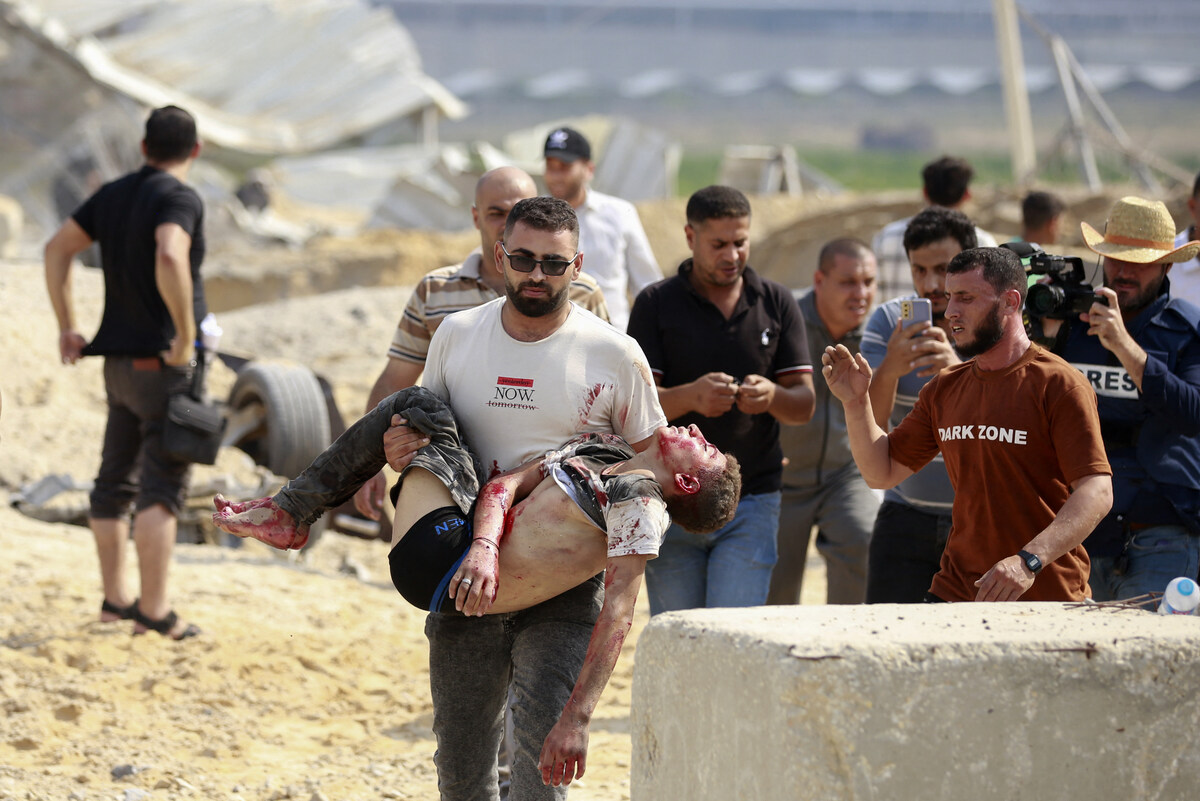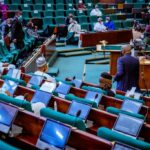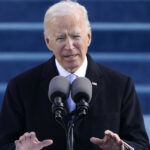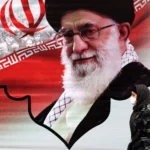The US has imposed sanctions on an Israeli group it says has been attacking humanitarian aid convoys heading to Gaza.
The state department said the US assets of Tzav 9 – an organisation with ties to Israeli reservists and West Bank settlers – will be frozen and Americans will be barred from dealing with it.
For several months Israeli activists have been preventing aid convoys destined for Palestinians in the Gaza strip.
On 13 May protesters were filmed attacking two trucks in the occupied West Bank, ripping bags of grain open. The vehicles were set on fire. The White House described the “looting” of aid convoys as “a total outrage”.
- GITEX AFRICA, Moroccan renaissance and the search for digital health solutions in Nigeria
- Nigeria betrays General Murtala Ramat Muhammed
At the time, Tzav 9 said some of the protesters’ actions were “not in line with the values of our movement”.
But it added that “blocking the trucks is an effective and practical step in which we shout that ‘no aid passes until the last of the hostages returns’”.
The state department said on Friday that US sanctions were being imposed under an executive order on West Bank violence signed by President Joe Biden in February.
“For months, individuals from Tzav 9 have repeatedly sought to thwart the delivery of humanitarian aid to Gaza, including by blocking roads, sometimes violently, along their route from Jordan to Gaza, including transiting the West Bank,” the state department said in a statement.
It has previously sanctioned Jewish settlers involved in attacks on Palestinians as well as on Palestinian militant groups.
The Israel Defense Forces have also been accused of withholding aid – a charge it denies.
The UN has warned that over a million people in Gaza could face starvation by the middle of July unless more aid is allowed into the strip.
More than 37,000 people have been killed, and many hundreds of thousands more injured or displaced in Israel’s offensive against Hamas in Gaza, according to the Hamas-run health ministry.
The war began after Hamas attacked Israel on 7 October, killing about 1,200 people and taking 251 others back to Gaza as hostages.
Meanwhile, the UN children’s agency Unicef has told the BBC a convoy carrying aid was denied entry to northern Gaza, despite having all the necessary documents, adding that this is a common occurrence.
UNICEF spokesman James Elder, who was on a lorry in the convoy, also said that while waiting at a checkpoint he witnessed the fatal shooting of two Gazan fishermen.
In their response, the Israel Defense Forces said documentation for the Unicef vehicle in the convoy was not filled out correctly and accused Mr Elder of presenting a “partial picture”.
In an interview with the BBC’s Today programme, Mr Elder said: “They’re so despairing, they’re so broken, they’ve lost so many family members, they have nothing left.”
He said the areas of Gaza being denied aid were suffering from levels of severe malnutrition unprecedented in Gaza.
He added that doctors in Gaza had needed to be trained to deal with the most serious cases as they had not experienced them in the past.
His remarks came after World Health Organization Director-General Tedros Adhanom Ghebreyesus said on Wednesday that a significant proportion of Gaza’s population were facing “catastrophic hunger and famine-like conditions”.
More than 8,000 children under five years old had been diagnosed and treated for acute malnutrition, of whom more than 1,500 had a more severe form, Dr Tedros added.
More than 37,000 people have been killed, and many hundreds of thousands more injured or displaced in Israel’s offensive against Hamas in Gaza, according to the Hamas-run health ministry.
The war began after Hamas attacked Israel on 7 October, killing about 1,200 people and taking 251 others back to Gaza as hostages.
Mr Elder said people had told him they would be “happy if there is an air strike” on their homes, to end their suffering. (BBC)

 Join Daily Trust WhatsApp Community For Quick Access To News and Happenings Around You.
Join Daily Trust WhatsApp Community For Quick Access To News and Happenings Around You.


